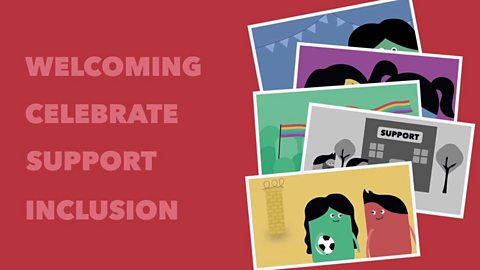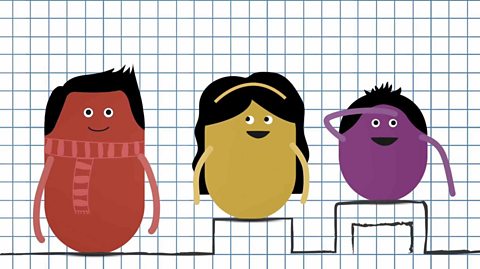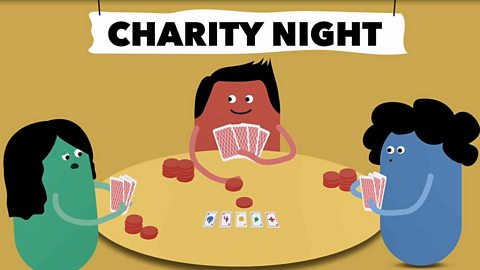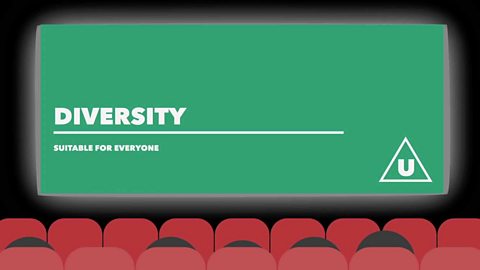Conflict in a community
Sometimes people with different cultural identities fail to understand each other.
Misunderstanding can lead to fear.
Fear can cause:
- Prejudice т intolerance and mistreatment of a person because of their race, religion, sexuality, disability or political beliefs.
- Stereotyping т making an unfair assumption or generalisation about a person based on an aspect of their cultural identity. Examples include the belief that тwomen canтt driveт, or describing people as тhoodiesт or тchavsт.
- Sectarianism т treating a person unfairly because of their religion. In Northern Ireland, this most commonly occurs between Catholics and Protestants.
- Racism т mistreating someone based on their race or ethnicity.
- Homophobia т disliking someone because of their sexual orientation.
These challenges can lead to conflict in a community if they are not properly addressed.
If people from different communities do not, or cannot, integrate with one another they may feel excluded and isolated.
Causes and consequences of conflict
Conflict can happen on a local, national and global scale.
An increase in the number of people in a particular area can put pressure on public services such as housing and hospital waiting lists.
However, immigrants contribute more in tax income than they use in services.
There is evidence of prejudice against immigrants across Northern Ireland.
A 2018 headline from the Belfast Telegraph reads:
Racist crimes outnumber sectarian incidents in Northern Ireland in past year
This is despite the contribution that migrants make to Northern Irelandтs culture and economy.
- Migrants make a significant contribution to the economy: they fill skills gaps, pay taxes, and spend money.
- Migrants contribute to Northern Irelandтs cultural diversity.
- Some people may think that migrants take jobs from local people. This view likely arises from prejudice. Studies show that migrants expand the economy, thereby creating more jobs than they fill.
- Some people may think that migrants come to Northern Ireland to claim benefits. While this may be true in a minority of cases, the majority of migrants find gainful employment.
- Migrants have caused an increased demand for public services such as healthcare, education, and social housing.
Local conflict - dealing with sectarianism
The main conflict in Northern Ireland over the past fifty years has been sectarian - that is, between different religions (in this case, Catholics and Protestants).
Sectarianism in Northern Ireland takes several forms:
Hostility and tension in certain communities or at тflashpointsт between Catholic and Protestant areas. Hostility is often demonstrated through the flying of flags, to show that only one side of the community is welcome.
Exclusion as some communities тstick togetherт and don't associate with people from other groups.
Discrimination as people are denied jobs or rights based on their religion.
Violence broke out across Northern Ireland during the Troubles, mainly perpetrated by paramilitary groups such as the IRA and the UVF. This violence continues on a small scale today.
National - conflict across the UK
Here are some examples of conflict that has occurred throughout the UK:
- Exclusion: minority groups may feel marginalised, and may not integrate with the rest of society.
- Sectarianism: religious intolerance in the UK is not as strong as it is in Northern Ireland. Nevertheless, tension does exist between Christian, Muslims, Jews, and Hindus.
- Racism and ethnic tensions: some people hold negative views of those from other ethnic backgrounds. These views may be expressed as racist remarks, discrimination or even violence.
- Social unrest: this arises when sections of society are opposed to government policy, or to actions of the state. Social unrest is usually expressed as rioting and looting.
- Inequality: this is the difference in wealth and income between different groups in society. It is normal to have some rich people, and some poor people. However, conflict arises when these differences become too great.
Global - conflicts around the world
There are many conflicts around the world. Here are some current examples.
- Religion: discord between Hindus and Muslims in India and Pakistan.
- Sexuality: persecution of LGBT people in Russia and other countries.
- Gender: the abuse of women by Boko Haram in Nigeria.
- Race: police killings of black people in the USA.
More on Local and global citizenship
Find out more by working through a topic
- count3 of 5

- count4 of 5

- count5 of 5

- count1 of 5
